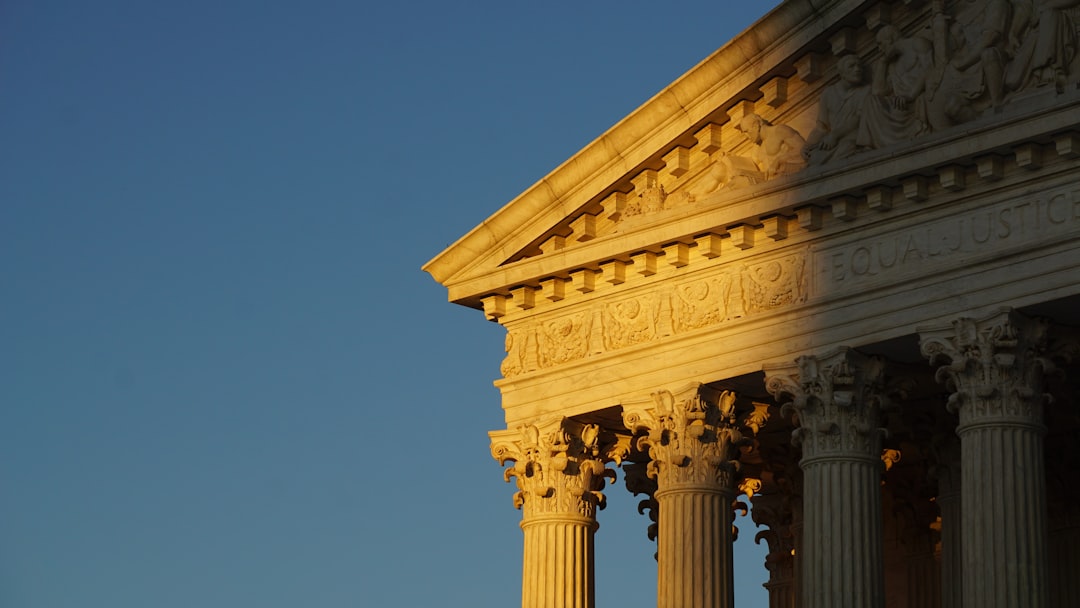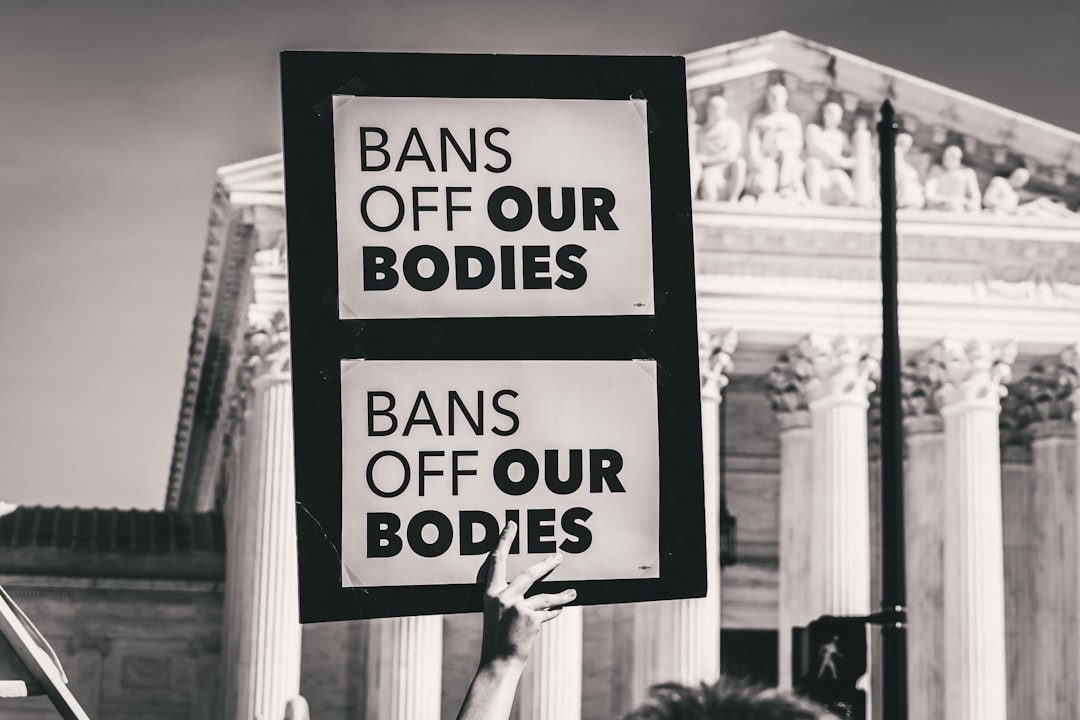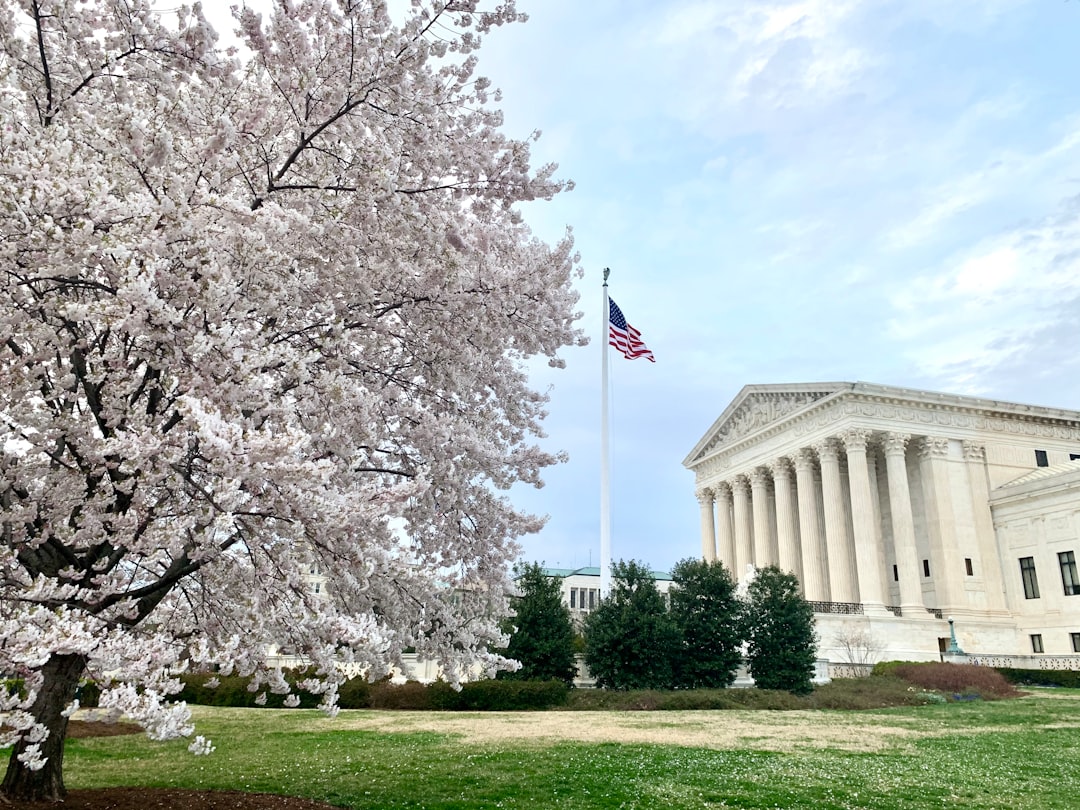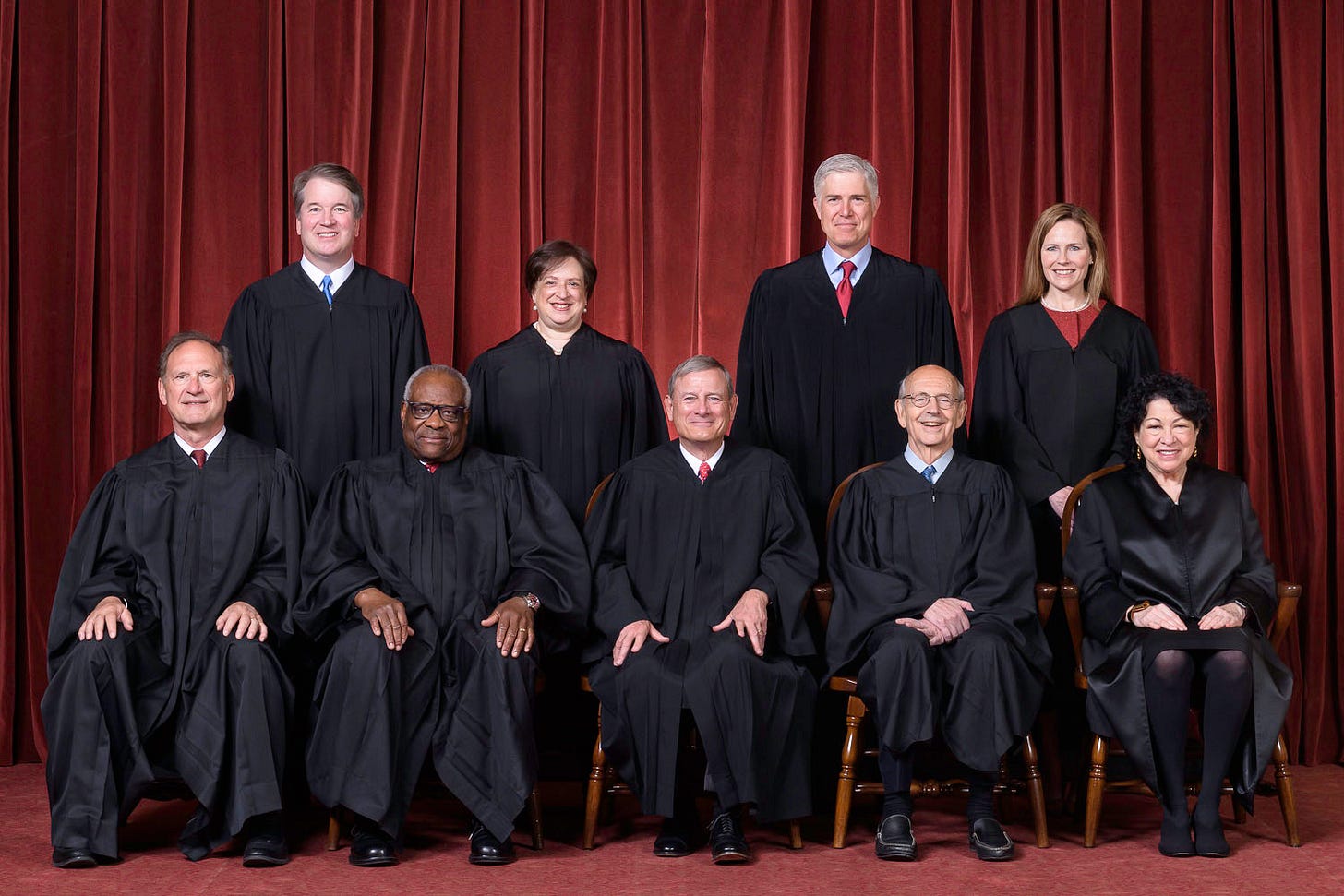Numlock Sunday: Chris Geidner of Law Dork about the new normal at the Supreme Court
By Walt Hickey
Welcome to the Numlock Sunday edition.
This week, I spoke to Chris Geidner who launched Law Dork earlier this spring, a new newsletter all about the rapid changes happening in American courts and law.
Chris is brilliant; you may recognize him from his coverage of marriage equality at the Supreme Court and his recent coverage of the changes at the nation’s top court.
This has been a really dynamic couple of months in the legal world, and Chris has been there to cover it. Today, we talk about why this moment is fundamentally different than previous times where the court entered the conversation, and what’s changing.
Geidner can be found on Twitter and at Law Dork,
This interview has been condensed and edited.

Hey Chris, thank you so much for coming on today.
Thank you so much for having me.
You are the writer of a new newsletter called Law Dork you launched back in the spring. This has been a really fascinating time for news about the law. There have been periods of time where law has kind of skated underneath the radar. This is not one of those times. You launched, I want to say three days, maybe four days, before the Supreme Court decision. How has it been, jumping directly heels first into this?
Yeah, I mean, obviously, I've been covering the Supreme Court for a long time now, but it sort of felt like there was enough happening, and there was going to be such fallout from it. And there were going to be so many sort of both short-term and long-term consequences of what's going on at the Supreme Court now, that I honestly really wanted a space where I could write what I wanted, when I wanted, how I wanted. And felt that I had built up enough credibility on the issues that people would be okay with that.
Yeah, people will know your work from Buzzfeed, from Grid, from Bolts. You've really been covering this for a very long time. And I just, I was so struck by the timing, because I think that you announced that you were kind of going independent. It was in that period between when the Supreme Court decision leaked, and when it actually properly went out. And I guess I'll just ask: Did you kind of suspect that the Supreme Court and courts in general and the law were going to become a little bit more of a hot button issue these days?
I mean, I definitely thought that the ruling in Dobbs was going to be a crystallizing moment for something that those of us who follow the Supreme Court more closely had sort of been saying was starting to happen, which is that once Justice Amy Coney Barrett was confirmed, the median of the court — remember there are only nine justices, and you only need five to do something — that the median of the court was no longer going to be Chief Justice Roberts.
And what that meant is that there were going to be five people, a majority of the court, more conservative than him, who could create a majority without him. And that was going to dramatically change what the Supreme Court looked like. And we saw that early on, with some of the COVID cases, where the new majority once Justice Barrett replaced Justice Ginsburg, they were far more open to religious discrimination claims in COVID restrictions than the court had been previously.
That was the first sign. The second sign was when the court allowed Texas' SB8, the six-week ban that had the vigilante enforcement provision.
Yeah?
The six-week abortion ban. When they allowed that to go into effect last September, to a lot of us, I mean, it wasn't the end of Roe, but it kind of was. Because there was a majority of the court that was really allowing a law to go into effect, for several months, when Roe was technically still the law of the land, that violated it.
There had been this post-viability line. There had been a line that it would be almost impossible for states to ban abortion before viability, and Texas just ignored that. And the Supreme Court said that was okay.
We were like, "This is where this is going." And so, as the terms started wrapping up, and as the big decisions were coming down, there were some other big cases that we were waiting for. The gun decision out of New York. There were a few religious liberty cases. The coach on the West Coast, who was praying at the end of the game, in the middle of the field. And I sort looked at those cases, looked at where the court was at, looked at the fact that a lot of those were going to have after-the-fact implications, and decided that if I was ever going to give a try at going independent, this was the time.

Yeah. I think it's just so prescient, and it's been such an interesting term, not just because of the top-line issue, abortion, but you had a post in July that really struck me, that was titled, "The Supreme Court is Making Governing Difficult." And it's your look at a lot of the other decisions that had been made in this most recent term, and the kind of direct implications that they have on our ability to operate a government. Would you like to expand on that, and what you saw this year?
For the longest time the Supreme Court was seen as either more helpful to states’ rights or more helpful to the federal government, more helpful to the executive branch, more helpful to the legislature. And what we saw this term was an effort that no matter where you were, they were making it more difficult for governing. And that was the situation.
One big case, that was initially seen as they didn't go as far as they could have, was this West Virginia v. EPA case. And there was some concern that they would've really eliminated the ability of the EPA to do any sort of regulation with emissions. What they did was more limited, and said that the way the EPA went about it, in this case, was impermissible, so they would have to start over and try again. Which, yeah, is bad and makes it difficult for the EPA. There could be challenges to whatever they do next. But they didn't remove authority altogether.
The way that they did it was this thing called the Major Questions Doctrine. And this new majority has been playing around with the Major Questions Doctrine over the course of the past year. It's becoming more of this catchall view that the court can take, that whenever there is a general law that was written where, in the past, we would've thought, "Well that allows an agency to look at changing circumstances and adopt a policy that will help fix that change,” what the Major Questions Doctrine says is, if there is something big enough that it's a major question about governing, and about the way that we're operating the EPA, the HHS, whatever it is? Congress has to specifically, explicitly say that they're granting that agency that authority to do that. How specific? How explicit? We don't really know yet.
That's part of why it's so troubling, is it could sort of change as the next case comes. It makes it so that it's really hard to create legislation that is broad, forward-looking and allowing agencies to react to change situations. Basically, in order to adopt big policies in the future, you will need to have a Congress and a president that go along with you.
In other words, unless you have what we call in politics a trifecta government, unless you have the same party in both House, Senate and the White House, it will make it really hard to do big things, because you won't be able to point to past legislation as your reason for doing.
That's statutory law. On the other side, the court also has taken a bunch of longstanding precedents and said — and this is more in constitutional law. On the constitutional side, the court is also limiting things to make almost every rule, a part of how you decide whether something's allowed is by referring to historical practice. We saw this in the guns case. We saw this in some of the religious liberty cases. And we obviously, certainly saw that in the abortion case.
What that does is really create this situation where we're only going to allow rights and constitutional protections to be found in 2022 that were being protected back in either 1791, when the Bill of Rights was passed, or in the 1860's, when the 13th, 14th and 15th amendments were passed. That is another way of severely limiting the way that people are going to be able to find protections from their government.
Obviously, think about that; if we're talking about either at the founding, or when the civil rights amendments were passed, that's before women had the right to vote.
Yeah.
We're really going back to a time when the system was not just inherently biased, but explicitly biased, against certain people. The Supreme Court is saying, "We looked at that time to determine whether we're going to protect people today." I think that's just going to have a lot of long-term implications, that if it really is implemented in this expansible way, as Alito and Thomas suggested in the gun opinion and in the abortion opinion, that we'll just severely limit the way that we see constitutional protections going forward.
It's a fascinating time. I know that you've been covering the court a long time. This seems like a shift that we haven't really seen the likes of in a really long time.
One of my longstanding things that I used to say about the court — and this does go to the point of how quickly things are changing — whenever I was talking to students in classes, I would say the Supreme Court is an ocean liner, but it has nine captains. And it takes five of them to move the ship at all.
You think about an ocean liner in general, with one captain, it’s difficult to maneuver. If you have nine, and you need five of them to agree, it's very, very difficult to get movement.
At the same time, you change one captain, and that dramatically changes things, because you now have a whole new system of voting. Because it's nine people. Think about it. If you were in an office and you only had eight other coworkers, and you basically were only going to have those eight coworkers, or replacements for those eight coworkers, for the rest of your life.
I mean, there was a point in our lives where that stayed the same for a long time. After Clinton's nominees, after Justice Ginsburg and Justice Breyer were appointed, then in the early '90s the next appointment wasn't until Justice O'Connor retired in the mid-2000's, in Bush's second term. So we went more than a decade with all nine seats in the Supreme Court staying the same.
Wow.
They got very comfortable together. They knew what they were doing. They knew how they were reacting. And that was part of, right in the middle of that, was Bush v. Gore. And that was why Bush v. Gore was seen, even within the court world, as such upheaval. Because this was a group of people who had been together for six years at that point. And then they had this giant political upheaval in the middle of their court. But then they were together, still the same four, for another six years.
When it comes to the past six years, since Justice Scalia died in 2016, we've had dramatic change, with two justices dying, with another two justices retiring now, Kennedy and Breyer, in addition to Justice Ginsburg and Scalia dying.
We have four court members changing in that six-year period, in addition to the fact that we actually had multiple nominations, because obviously we had the failed Garland nomination, initially, to replace Justice Scalia. It really has been this dramatic change in the court over the past six years.
Each change has had an extreme effect on moving that court to the right, until now with Justice Breyer being replaced by Justice Jackson. What that's done is really put us to this place, where now we do have five justices who have been willing to do things that are not necessarily even ideologically or legally different from where Chief Justice Roberts would like the court to go, but they just are doing them in such an abrupt way that he expresses it as basically the Supreme Court taking on more than it needs to to resolve the case, and that's improper.
I think functionally, he also thinks it's dangerous for the institutional integrity of the court for the court to do that. That's why we now see the court less popular in the public's view than it's been in decades.
There's so much fascinating stuff going on here. I don't even think that we're going to have time to get to the recent story of a Florida man being served a subpoena.
I guess, before we wrap it up, I guess I'll just ask because I think it's fun gossip. What's your read on the "leak," how it got out?
Yeah. I mean, hate to put things like that on the record. My guess is that it came from the conservative side, by somebody wanting to lock in the vote. Especially now that there is such reporting, that we all sort of guessed, but that based off the arguments that Chief Justice Roberts was trying to peel off a vote, to keep them for from overturning Roe. His concurring opinion, he wanted that to be a controlling opinion, where the court upheld the lead issue in Dobbs, the 15-week ban, but didn't overrule Roe in its entirety.
The most logical thing for me is for that to have come from the conservative side. Not willing to put on the record my guesses beyond that. But I think that's the case. But now, at the same time, I don't think it's that important. I mean, the leak was no different than what all of us thought coming out of arguments. Like, that's the thing.
It was dramatic, and the court prides itself on its secrecy, and blah, blah, blah, all of that. But functionally, it wasn't a surprise.
Yeah.
The votes were there, at argument. The only question was whether Chief Justice Roberts is going to be able to peel off a vote, probably from Kavanaugh, to have some sort of moderate half-step toward overturning Roe for this case.
It was said, in either Alito's opinion or in Thomas's concurrence, or I think it was one of the two of them, that what Roberts was doing wasn't going to resolve the issue. He was literally just putting it off. It would've half gotten rid of Roe, for the 15-week mark, for the purposes of the Mississippi case. But the Texas case was waiting out there. And so, then there would've been a six-week ban that would've gotten to the court the next term. And so we would've been dealing with this then.
I think Roberts is right that, yeah, the court traditionally doesn't decide more than it needs to to resolve a case. He was probably right, as to that case, how the court could have resolved it. But functionally, the leak, it only told us that Roberts wasn't succeeding.
I feel like when Breyer announced a retirement in January, it was like, I think the excrement's about to hit the air conditioning.
I do want to say, I think a lot of what we've seen this summer and a big part of why I started the newsletter was that these are decisions that have big impact. That have very real fallout, immediately. I knew that there, having covered marriage equality and its advance over the course of the 2010's, I knew that we were going to sort have almost a reverse period of that, where we were going to have these moving cases state by state, day by day, week by week, month by month. That we're going to be pulling back this right, and these trigger bans were challenged, and went into effect. Now we're seeing that with these cases over emergency room care that are running in Idaho and Texas, because their trigger bans go into effect on August 25th.
In one case, DOJ is challenging Idaho to have an exception, to ensure that emergency room care that conflicts with Idaho's ban is still allowed.

In Texas, Texas is suing the U.S., saying that they don't want this emergency care requirement, to prevent it from enforcing its ban on abortion. And those cases are going on right now, in the summer. There's a hearing today in the one case, and a hearing on Monday in the other, and there are going to be appeals, probably.
This could be something that is in front of the justices next week, before the trigger bans go into effect. This is still happening. As we're seeing in the cases that are making big in the news, where it's individual people seeking abortions and being denied, or having to go out of state to get them, this is a case where it challenges new laws that are going into effect.
It's a really fascinating time. I am a big fan of your work; going back again to marriage equality and all that, I am very grateful that you have started this newsletter.
Tell us about Law Dork. Where can folks find it? What are you looking forward to? What's the plug?
Law Dork was the name of my original blog, back in the early 2000's, and as with all things, I allowed a vote on the internet, and they said they wanted Law Dork to come back. So Law Dork is back. It's ChrisGeidner.Substack.com, and there are two to three newsletters a week. And I cover primarily things that are Supreme Court-related, LGBTQ-related, abortion-related, criminal justice-related.
I've been covering a lot more about Florida than I imagined, between that Florida man that you mentioned, and the various efforts from Governor DeSantis to make lives difficult for people in Florida, whether they be an elected prosecutor in Tampa or LGBTQ people.
The point of the newsletter is to go into those topics that I think matter to people and are affecting people's lives and explain them, sort of a dual track audience to lawyers and advocates who work in the legal sphere, who want to stay on top of what's going on, but also something that's accessible to people who just care about these issues.
Subscribe. Follow me on Twitter. I'm always around. And certainly, if there's something that people think I should be covering at Law Dork, LawDorkNews@gmail.com. Send it my way.
Keep reading with a 7-day free trial
Subscribe to Numlock News to keep reading this post and get 7 days of free access to the full post archives.




